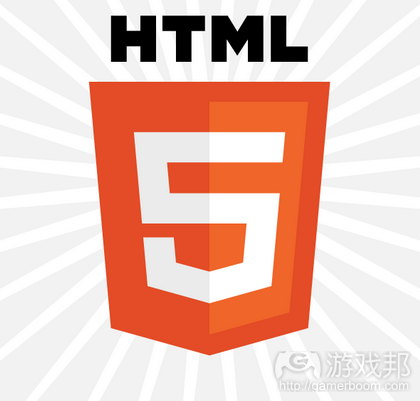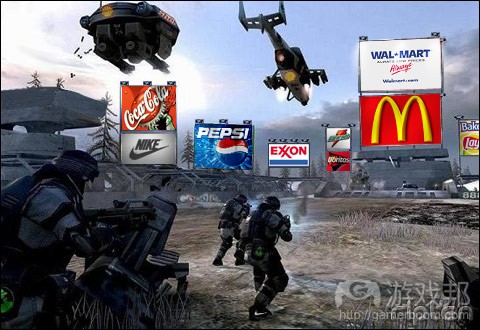阐述2012年HTML5游戏的发展机遇和盈利方式
作者:Mark Wilcox
作为HTML5游戏设计师,我总是对开放网络游戏的未来抱着乐观的态度。我喜欢Canvas技术,这几乎是我所使用的HTML5技术中最重要的元素,我喜欢运用此新兴技术制作游戏作品。
2011年,我们取得了非凡的成就。
作为HTML5游戏设计师,我们目前的表现令人难以置信。我们勾勒出无数很棒的游戏想法,只需花费些许资金我们便能够将其制作成游戏。希望在2012年,你可以制作出最优秀的作品。
不要仅仅满足于你的想法,而是要将其构建成真正的游戏。不要仅仅满足于对想法的简单执行,而应检查和润色代码,直到你真正得到玩起来很有趣的产品。
如果你想要设置奖励道具,编写代码就能够做到这点!如果你想让文字循环闪烁各种颜色,因为你觉得这样会让游戏的视觉效果更棒,编写代码能够实现这点!如果你想将游戏中的东西炸成碎片,编写代码能够将其变成现实!
玩家会默默地对你付出的努力表示感谢,你获得的奖励就是他们会选择更多你制作的游戏。
我要给你透露几个秘密,希望能够鼓励你在这条路上继续前行,制作游戏并将其改善和提升。
秘密1:今年我的游戏为我带来了收入。我赚到了很多钱。准确地说,游戏带来的收入超过我薪资收入的一半,而赚到这些钱只花了4个月的时间。
秘密2:我未曾使用而且也不打算使用HTML5游戏架构。我尝试过一些架构,确实很喜欢它们。尽管它们能够节省时间和精力,但是我并不喜欢使用他人的代码。我的观点是,你可以通过自己的代码赚钱。如果你自己编写的代码有效而且能够很好地发挥作用,确保让这些代码易于分析、灵活且能够进行编辑,这样你就拥有属于自己的架构。
那么,以上这些是如何实现的呢?我如何在不到半年的时间里靠游戏赚到钱呢?
以下是我的个人建议。
进军手机市场
到目前为止,我所做的最大改变是让自己的所有游戏顺利在智能手机上运行。最为重要的是,我所设计的游戏无法适应屏幕尺寸固定为320 x 480的iOS设备。
我完全不知道要如何针对iOS平台制作web应用,直到我购买了《Building iPhone Apps with HTML, CSS, and JavaScript: Making App Store Apps Without Objective-C or Cocoa》这本书,它改变了一切。我很快就理解了视口呈现和缩放。我还学到了一些很棒的CSS技巧以及如何最有效地利用手持设备。
看完这本书后,我继续研究触屏控制及其相关事件。
针对触屏设备开发内容完全不难。在开发过程中,如果你需要用到触屏动作的话,可以通过鼠标来模拟,只要留心各事件处理的不同之处即可。
制作手机游戏的另一要点是需要理解缩放和构图。在如此小的屏幕上,玩家不希望自己控制的是又小又需要技巧的精灵。学习如何最大化地利用你的绘图包,制作出较大且色彩鲜艳的精灵动画。记住,你的玩家想要的是那些能给他们留下深刻印象的东西。
把握创收选择
目前,你有诸多发布游戏的选择。并非所有的选择都能够为你带来收益,所以记住如果游戏的曝光度不够,它就无法为你赚到大笔金钱。
以下是两种我已经试验成功的方法。
授权选择
许可游戏意味着你可以保留对内容的所有权,只是许可第三方使用你的作品而已。许可分为两种:独家许可和非独家许可。
1、独家许可意味着一旦你许可某个第三方公司使用你的作品,就不能再授予其他公司许可。
2、非独家许可意味着你可以自由地给多家第三方公司颁发许可。我偏向于这种许可方式。
当然,如果客户要求独家许可的话,你可以要求他们支付更多的许可费用。
在非独家许可方面,我发现各个公司能够提供的预算差别很大。某些情况下他们能够获得4位数的资金,但多数情况下都只是3位数。游戏的平均许可费用在350到400英镑之间。
这里要提到的公式很简单:更多游戏=更多的许可费用。
我制作了8款游戏,联系人数量在20个左右。我经常与这些联系人交流,维持良好的合作关系。
游戏门户网站运营商通常也希望能够通过手机来盈利。
他们都会有一些自认为能够吸引手机游戏玩家的作品,研究这些门户网站,看看你做的游戏是否与他们的偏好一致。
不要只关注题材,要注意游戏风格。不同题材的流行游戏可能有着相似的风格。
收益分成和广告
顾名思义,盈利分成指你与客户按比例进行游戏收益分成。
对于游戏的许可,客户只有些许预算或完全没有预算,这种情况很可能会出现。在这种情况下,他们可能会向你提供通过广告来获得收入的机会,双方对半分成所获得的收入。
到目前为止,我已经成功地使用了Google的AdSense。我认为,这不是最好或者最流行的广告网络,但对初学者来说依然是个不错的选择。这项综合性的服务免费且易于使用,而且他们的付款方式并不复杂!
在游戏的主界面上留些许空间(游戏邦注:游戏结束的呈现界面也可以留出空间,因为玩家在这两个地方的表现相对较不活跃),以容纳320 x 50的小广告,然后登陆www.google.com/adsense发布信息。所有广告采用的都是CPC(游戏邦注:根据点击次数付费)模式,Google会按月根据广告的点击次数支付酬劳。
你的客户会把所有的流量导向自己的产品,而你同样为他的用户提供了绝妙的游戏体验。
保持对门户网站的关注。他们会对游戏的发布感兴趣,所以他们会解决流量方面的问题。他们会确保自己的用户群体能够看到你的游戏。如果可以的话,在游戏中留出一块区域,用来发布链接,至少要呈现你的网站URL或Twitter账户。
而且,你需要理解游戏许可相关的法律事务,这一点非常重要。
我很幸运,我有个对这方面很熟悉的优秀律师。他帮了我很多忙,解决了许多令我头疼的问题。雇佣律师不便宜,但是优秀的律师能够免除你的大量压力和金钱损失。
你多半会制定一般许可协议,然后交予客户填写。
某些情况下,你的客户可能希望保持文本工作的一致性,于是也要求你填写他们的表格。在这种情况下,你要保持理智,寻求律师的意见。确保你签署的所有协议对你和你的客户都是平等的。确保你的协议受所在地法律的保护。
相信我,避免法律纠纷是愉快进行游戏开发的关键。
2012年,我希望HTML5游戏制作者能够有更多的发展机遇。2011年,行业的表现相当不错。最后数周的消息简直令人难以置信,行业宣称Flash在手机上已濒临死亡。
这只是冰山一角。现在,开放网络游戏正以我们预期的速度席卷全球,我们都亲眼得见其取得的巨大进步以及浏览器开发商和工具开发商逐步发展壮大。
HTML5 Audio带来的问题不久就会得到解决,我们可以制作出非常优秀的游戏,呈现给全球用户。而这些游戏的质量都足以给制作者带来大量收入。
或许你就是这些制作者之一,或许明年你会在某城镇的小工作室中制作出游戏,以500英镑的单价出售给6个门户网站,且游戏受到众多玩家的欢迎。
或许你会和好友合作制作游戏,通过游戏广告每月获利3000英镑。这些情况都有可能出现,而且对许多人来说将变成现实。努力吧,让它们在你的身上发生!
游戏邦注:本文发稿于2011年12月22日,所涉时间、事件和数据均以此为准。(本文为游戏邦/gamerboom.com编译,拒绝任何不保留版权的转载,如需转载请联系:游戏邦)
HTML5 gaming in 2012
Mark Wilcox
As an HTML5 game designer I am always optimistic about the future of gaming in the open web. I love this Canvas technology (which is pretty much the largest aspect of HTML5 that I use) and I love the process of crafting games to exploit this burgeoning technology.
2011 has been a great year.
As HTML5 games designers we are in such an incredible position. We can daydream about countless cool ideas for games and we can quite inexpensively go out there and make them. Let this next year be the year that you push yourself to make the best games you could possibly make.
Don’t settle for your first idea. Build on it. Don’t settle for your first half dozen implementations of an idea. Work them through and refine your code until you get something that is just plain fun to play.
If you want the bonus items to bounce around, code it! If you want the text to flash through a colour cycle because you just know it’ll look great, code it! If you want to blast something quite literally to pieces, code it!
The player will silently thank you for your efforts and reward you by coming back for more.
I will let you in to a couple of secrets in the hope that it encourages you to go and make these games and make them good.
Secret #1 – I made money this year through my games. Quite a lot of money. Over half my salaried income to be more accurate and I made all of that in the last 4 months.
Secret #2 – I didn’t, don’t and never will use an HTML5 game framework. I’ve checked a few and I love them. Sure they could save me some time and a lot of effort in the finer things but I just don’t get excited about using somebody else’s code. My point isn’t that, though. My point is that you can earn money by rolling your own code. If it works and works well make sure you make it readable, flexible and editable and you have right there your very own framework.
So how has all of this been possible?
How did I get very close to matching my salary in licence fees in under half a year?
Here’s my advice.
Embrace mobile
By far the biggest move I ever made in all of this was ensuring that all my games can be played on a mobile smartphone. Most importantly I designed my games to work against iOS with the fixed screen dimensions of 320 x 480. Everything else came from there.
I didn’t understand creating web apps for iOS at all until I bought the book Building iPhone Apps with HTML, CSS, and JavaScript: Making App Store Apps Without Objective-C or Cocoa and it changed everything. I instantly understood about viewport presentation and scale. I also learned some cool CSS tricks and essentially how best to use the handheld device.
Separately from that book I went on to research touch screen controls and the associated events.
Developing for touch screen is not at all difficult. In development you can use the mouse to pretty much simulate the touch if you have to. Just be aware of the differences in handling the respective events and you will be fine.
Another important aspect of mobile gaming is the need to understand scale and composition. On a small screen you really don’t want to be concerned about controlling tiny, fiddly sprites. Learn how to make best use of your drawing package to create big, bold and colourful sprite animations. Remember, your players want something to impress their mates with.
Understand your options for monetization
You have a few options just now for getting your game out there. Not all of them involve generating any kind of revenue so be mindful that the simplest exposure for your games may not be the most lucrative.
Here are the two methods that I have used successfully.
Licencing options
Licencing your games means that you quite rightly retain ownership of the content and simply grant a 3rd party a licence to use your work. Licencing comes in two flavours; Exclusive and Non-Exclusive.
Exclusive means that the licence you grant to a 3rd party restricts you from further licencing options for your game.
Non-Exclusive means that you are still free to pursue other licencing options for your game. I chose this option.
Of course you can ask for much larger sums of money for your licence if your client should ask for an exclusive licence and you haven’t as yet licenced the use of the game to any other party.
Through non-exclusive licencing I found that the budget available to each company varied tremendously. In some cases we were talking 4-figure numbers but in most just 3. On a per game basis I would say that somewhere between £350 and £400 was about average. This grants the licencor distribution rights globally within their portal.
The figures here are quite simple: more games = more licence fee.
I have just 8 games and around 20 contacts.
I am in fairly frequent contact with most of those contacts and enjoy a great relationship with them.
Game portal operators generally aim to monetise through mobile phones.
They have a portfolio of games that they know will be a hit with mobile gamers so study the portals and see how any game that you make can complement their portfolio.
Don’t just look at the genre look at the style. It may be that a game in a different genre but with a similar style will be a hit for them and for you!
Revenue share and advertising
Revenue share is exactly what the name suggests – a split of the proceeds between you and your client.
It’s quite possible that the client has little or no budget for licencing games. In this scenario they may offer you the chance to create some money through advertising and you split the proceeds down the middle.
I have successfully used Google’s AdSense to date. Not the best or most popular advertising network I grant you but a great one for starters. It’s free, easy to use and integrate and they don’t mess about with payments. You just get paid!
Make some space in your game’s home screen (and possibly Game Over screen, essentially the 2 places where the player is inactive) for a small 320 x 50 advert and get along to www.google.com/adsense to figure it out. It’s all CPC (Cost Per Click) and providing you don’t go clicking your adverts all day and all night Google will quite happily serve up your ads and pay you each month for every click it takes.
Your client will drive all the traffic your way for his part and for your part you present a great game to his audience.
Always look to the portals for your business. It is in their interest to publish the games within their portfolio so they will handle the traffic. They will ensure that their userbase comes to see your games. Where possible retain an area within your game for a link or at least a display of your web site URL or Twitter handle.
Also, and this is very important, understand the legalities of game licencing.
I’m lucky, I have a great lawyer who understands this stuff. He’s helped me a great deal and saved me a great many headaches. Lawyers are not cheap but a good one will ultimately save you a tremendous amount of stress and money.
You can probably figure out a generic licencing agreement that you can ask your clients to complete for you.
In some cases your clients may wish to remain consistent in their paperwork and ask you to complete their own forms. At this point be smart and seek advice. Be sure that any agreement you sign up to has your own interests as well as your clients. Make sure that your agreement is covered by the laws of your own land.
Avoiding legal complications is the key to happy game development. Trust me.
In 2012 I would hope to see more options for HTML5 game creators.
2011 has been great. The last few weeks (since the announcement that Flash on mobile is to die) have been incredible.
This is very much the tip of the iceberg. Now that open web gaming is sweeping through town at pace we can expect to see huge strides made and increasing strength from browser vendors and tool developers.
Issues with HTML5 Audio will soon evapourate and we will be left with the fantastic scenario of being able to just make great games and push them out to a global audience. In many cases those games will be smart enough and good enough to earn their creator some money.
Maybe you are one of those developers and maybe next year you will be making games from that small studio in town and pushing them out to half a dozen portals for 500 (pick your currency) each and getting by just nicely.
Who knows, maybe you and a friend could be working on them together and monetising your games through advertising to the tune of 3,000 a month.
It’s all possible and for many people will become a reality.
Make it happen! (Source: spacemonsters)

